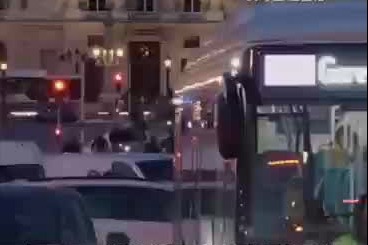Ending extradition treaties with Hong Kong creates crime havens
By Kathy Zhang in Hong Kong | China Daily | Updated: 2020-08-07 07:51
Former Hong Kong police commissioner Andy Tsang Wai-hung said on Wednesday some Western countries' suspension of their extradition agreements with the special administrative region is the wrong decision, akin to telling the world they are open to being safe havens for the city's criminals.

"Such decisions are counterintuitive. Definitely seems like a political move," Tsang told China Daily in an exclusive interview.
Tsang, who is also deputy director of the National Narcotics Control Commission, spoke after seven Western countries, including the United Kingdom and the United States, announced they were halting their extradition agreements with Hong Kong or were considering doing so. Some of the countries cited concerns that under the new National Security Law for Hong Kong, they would be required to transfer those accused of political crimes.
Tsang rebutted such claims, noting that the extradition agreement is signed between two jurisdictions to help each other surrender the other's fugitive offenders on a case-by-case basis.
"It's not about automatic transfer. Every case (under an extradition agreement) needs to go through a legal process before the final surrender," he said.
Tsang had actively promoted the city's cross-border police cooperation with many foreign countries, including the US, Canada, Australia and New Zealand, when he was Hong Kong's police chief, from 2011 to 2015.
He warned that any country that suspends its fugitive agreement with Hong Kong will send the wrong message to the city's criminals: This is a safe haven for you.
"Similarly, the move is going to tell those countries' criminals to flee to Hong Kong," he added.
In addition, Tsang said he thinks the decisions to halt extradition agreements with Hong Kong are not conducive to international cooperation to crack down on cross-border crimes, which will harm the interests of the general public.
A number of cases handled under the extradition agreement include crimes such as trafficking people and drugs, Tsang said.
"But now you say we're not going to work together. Who's going to benefit from the decision?" he said.
Tsang said that the United Nations conventions on transnational organized crimes call for international cooperation. "But what these individual countries are doing is contrary to the spirit of UN conventions," he said.
Tsang urged countries that have announced the suspension of their fugitive agreements with Hong Kong to correct their mistakes as soon as possible.
The unilateral decisions made by some foreign countries to halt existing agreements show a kind of "Cold War mentality", which implies that the Chinese mainland and the Hong Kong Special Administrative Region are always in the wrong, no matter what they have done, he said.
Tsang said some Western countries' politicians with such a mentality are attempting to demonize the authorities of the Chinese mainland and the HKSAR.
"When we try to bring peace back to Hong Kong by introducing the National Security Law, they threatened us with sanctions," he said.
Tsang said he hopes that dangerous mentality will stop, adding that otherwise, it will be catastrophic for the whole world.
Wu Yufei contributed to this story.
- HK cannot win by fighting a lone battle against virus: ex-health official
- Pandemic control of highest priority in HK, official says
- HK expands free testing to speed up screening for COVID-19 in community
- Legislator urges use of mainland expertise in HK outbreak
- HK lawmaker accuses opposition of 'politicizing' health
























